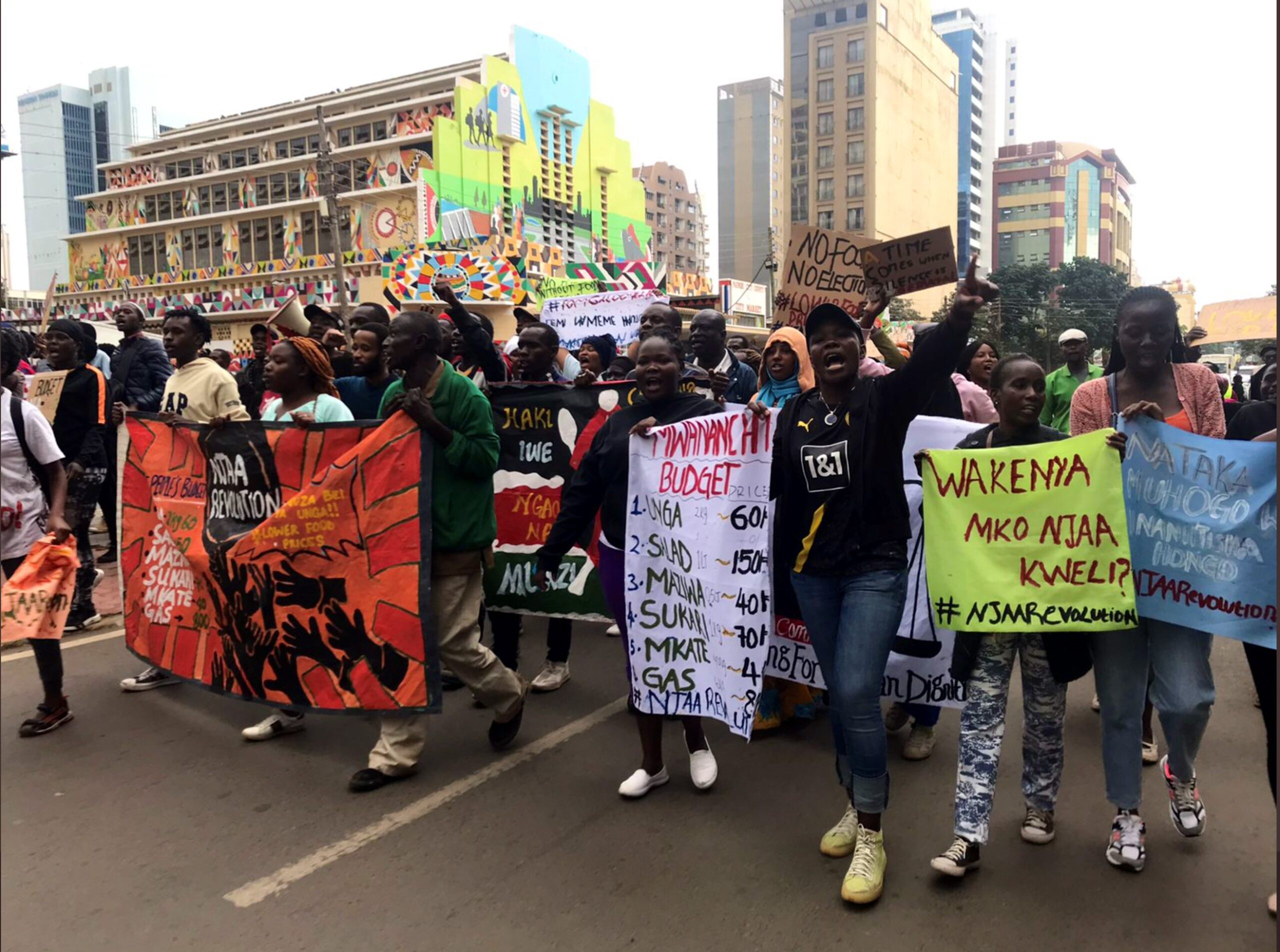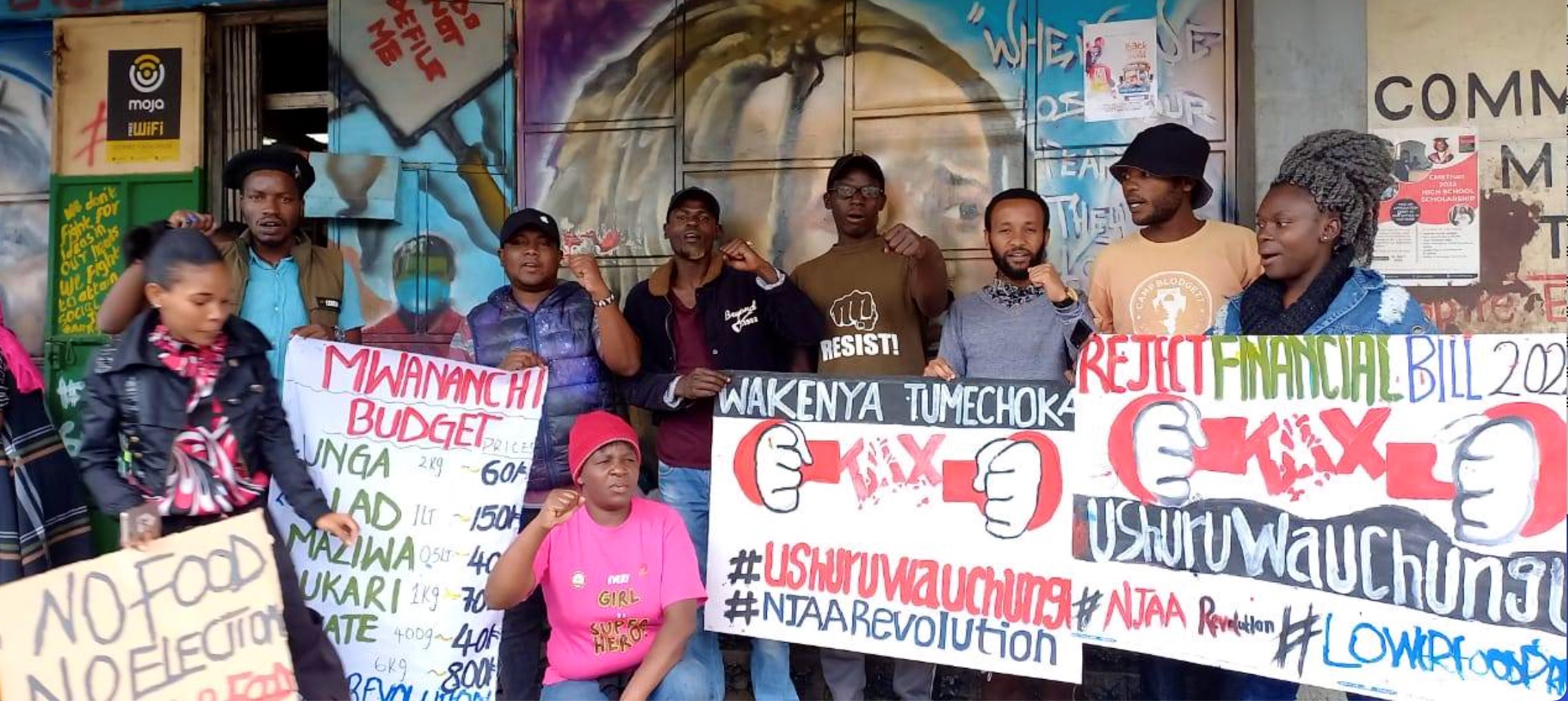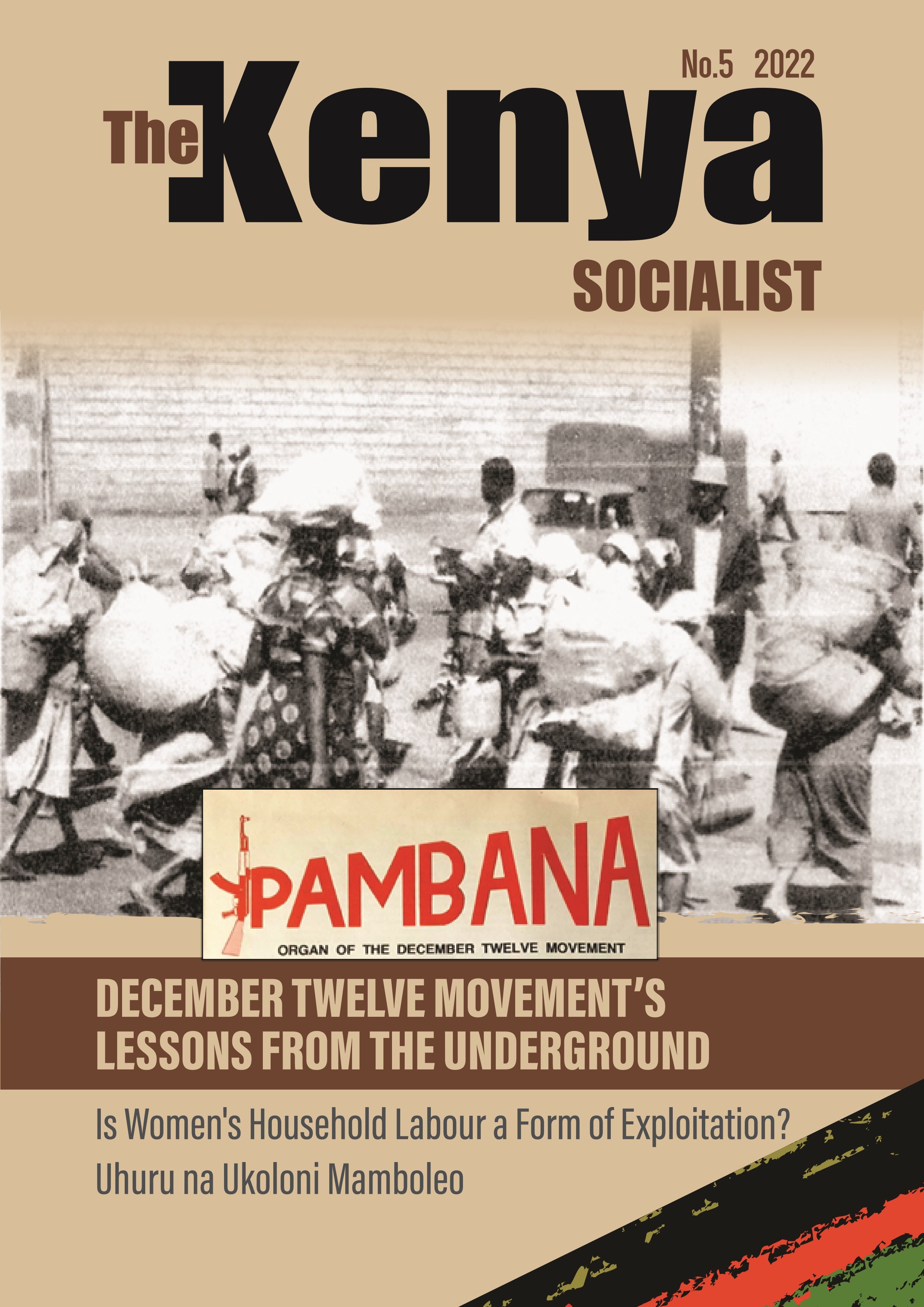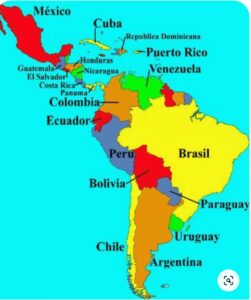The world is changing. Or is it? Vladimir Putin sees ‘truly revolutionary, tectonic changes in geopolitics, the global economy, in the technological sphere, in the entire system of international relations’ [which are] ‘fundamental, pivotal and inexorable’(1) And yet, imperialism is still destroying people, their countries, their cultures and their livelihoods with increased vigour. Are these the last kicks of a dying horse, or normal imperialism at work: doing what it does best — kill, maim and loot resources?
Marco Fernandes,(2) quoting the United Nations, says that there are 800 million undernourished people in the world today and that 250 million have lost their jobs during the pandemic. The underlying cause of such poverty and suffering is capitalism and imperialism — the elephants in the room.
Tectonic changes are not always obvious while they are taking place. Empires disintegrate and disappear, but gradually, not all of a sudden like a bursting balloon. Their disappearance becomes obvious much after their death. Decades after the end of the British Empire, many still have the mindset that refuses to absorb the reality of the end of empire. Is the USA Empire going the same way? Are we seeing the beginning of the last days of this superpower? There are many signs of the endgame, but only time will tell.
Marco Fernandes also shows a number of changes that are taking place on the ground. The first is the growth of BRICS (Brazil, Russia, India, China and South Africa), ‘one of the most important initiatives in the world’, in political and economic terms. China is now the largest economy in the world in terms of GDP and PPP (Purchasing Power Parity). Other BRICS countries are also fast catching up: India is the third largest economy, Russia the sixth and Brazil the eighth. As the European Union expands and NATO goes global, BRICS is set to expand, too, possibly with the addition of Iran and Argentina in the initial phase.
At the same time, many Latin American countries are rejecting USA-imposed governments and forming a ‘new wave of progressive governments’ (Fernandes). These include Colombia, Argentina, Bolivia, Mexico, Chile and Peru, with the possibility of Brazil joining them later in the year. That in itself shows a turning of the tide against imperialism.
A glance at the map of Latin America (3) shows what a big difference the changes in these countries have made — USA losing power over a large part of its ‘backyard’, with Cuba, Venezuela and Nicaragua already challenging USA control.
The International Monetary Fund and the World Bank are important tools of control Western imperialism has traditionally used over the South. BRICS now provides alternatives to these monster-controlling arms of imperialism. The New Development Bank challenges the monopoly of the World Bank and the Contingency Reserve Arrangement confronts the IMF, thus providing alternatives to the imperialist institutions.
USA has increasingly used the US dollar as a weapon against those whom it cannot control by other means. It freezes the deposits of many countries. For example, it has used economic sanctions against Cuba, Democratic People’s Republic of Korea, Venezuela, Iran, Afghanistan and now Russia. But here also, BRICS has come out with new weapons of defence by the increasing use of the R-currencies: China’s Renminbi, Russia’s Roubles, India’s Rupees, Brazil’s Real and South Africa’s Rand. Increasingly, trade between these and other countries takes place in these currencies, creating an alternative to the use of the USA dollar. In addition, the BRICS countries are discussing two important initiatives to free them further from the imperialist financial and economic stranglehold: the establishment of a new global reserve currency and the establishment of a new free-trade deal among themselves. China’s Belt and Road initiative is also changing financial and trade features of the world.
Another control mechanism that the USA uses over the rest of the world is its monopoly over the Internet. Fernandes says that alternatives to the Western dominated Internet space, in both the hardware and software fields, are now available in China. But in addition to Latin America and the initiatives from the BRICS countries, others are also resisting the imperialist hold over the world. A very good example is the refusal of many countries in Asia, Africa and West Asia to obey the dictates of USA-Europe to isolate Russia over the RussiaUkraine war instigated by NATO aggression. As the Indian foreign minister, Subrahmanyam Jaishankar, said: “The world cannot be Eurocentric [as] it used to be in the past.”4 It is remarkable that many, if not all, of the countri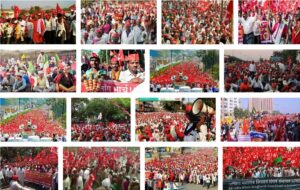 Kisan March, India
Kisan March, India
es that refused to follow ‘His Master’s Voice’ have been under imperialist control for many years. And yet there is more: more resistance to capitalism and imperialism. This time, not from governments, but from organised people and their organisations. Vijay Prashad5 mentions the situation in India, a member of BRICS and the third largest economy in the world. While the BJP government has been taking the country towards even more right-wing policies, people have been resisting.
Two facts from India: the 2016 strike of 160 million workers and the 2018 Kisan Long March of over 60,00 farmers over 200 kilometres. These are not spontaneous movements. They are organised by the Communist Party of India (Marxist), which in 2018 had a million members, 80 million in mass movements, 14 million members of the All India Women’s Democratic Association and over 12 million in All India Kisan Sabha.6 It is the organisations behind these actions that make the crucial difference in resisting capitalism and imperialism. Thus there are signs of major global changes already under way. Indeed, the world is changing. How then does the situation in Kenya reflect these changes, if at all? That is the question today. Kenya is firmly rooted in the global capitalist framework and it will not be easy for any resistance movement or progressive or socialist party to free the country from the death-clasp of international capital. And yet, this has happened in other countries. What is required are committed socialist movements that can come together in an organised way and prepare the ground over many years, perhaps decades. This is how, for example, the Left won in Colombia in 2022, as Prashad and Silva7 show:
The new path was paved by struggles that go back more than 60 years. The candidates that won the election — president Gustavo Petro and vice president Francia Márquez – both came from the heart of these struggles, from Left movements and social movements, from the obstinate fight of ordinary people to build lives that were not merely surrendered to the wealthy and powerful old colonial elites and the new narco-elites. They assembled the main organisations of these struggles into the Pacto Histórico por Colombia (Historical Pact for Colombia), which was their electoral platform.
There is no evidence of the existence of such militant organisations in Kenya. No doubt, the ‘obstinate fight of ordinary people’ takes place everywhere, but they have not been organised into a central, Left organisation. The last political party that organised on the basis of socialist principles was the Kenya People’s Union, which had a short life from 1965 to 1969 when it was banned. The December Twelve Movement (DTM) then organised underground in the 1970s and 1980s to avoid political and military attacks from the government. It is the lessons of DTM that form the basis of the main article in this issue of The Kenya Socialist. Yet all is not lost. progressive or socialist political parties emerge in the course of active struggles. There are many social movements that are active in Kenya. It was the coalition of such movements that ensured the adoption of the path-breaking 2010 Constitution. At the same time, progressive youth have come together in many social organisations and in the over 20 Social Justice Centres that are raising awareness among youth and taking action against police brutality, the high cost of living for working people, the availability of water, among other social problems. Such protests, however, often miss out the key issue — the elephant in the room — capitalism, which is the cause of all the problems faced by working people. After the repressive governments of Jomo Kenyatta and Daniel arap Moi, there has been more space for progressive ideas and thoughts to be discussed and disseminated. Many study groups have emerged recently, something that DTM had to undertake underground. Interestingly, DTM’s underground Library has found a new home in one other impressive the Ukombozi Library — ‘Kenya’s First Socialist Library’.8 Ukombozi Library also hosts many study sessions on and off site and is fast becoming the centre of radical space in Kenya. A group of progressive organisations has emerged over the years, comprising, among others, Ukombozi Library, All Africa People Revolutionary Party, Revolutionary Socialist League, Kenyans for Palestine, Vita Books, Organic Intellectual Network, Women in Social Justice Centres, Mathare Social Justice Centre, and the Dagoretti Social Justice Centre. They cooperate in organising joint public meetings and campaigns and provide a framework for more cooperation in the future. Ukombozi Library is featured in another article in this issue of The Kenya Socialist (TKS).
Other articles tackle the question of women’s work at home, African Liberation Day and the way forward for the Left in Kenya — all topics of discussion and debate in many study groups.
The current issue of TKS takes an important step forward by including an article in Kiswahili, Kenya’s main working-class language, spreading fast in Africa. This is part of our attempt to reach out to a larger readership in Kenya — and Africa. It is interesting to note that Otsieno Godrick translated the article from English for his study group. This also highlights the growth of study circles as an important new feature, as well as the role that young intellectuals are playing in political and economic struggles. They are beginning to provide the ideological support for political action. The issue also carries an item about the sponsorship by Vita Books and Ukombozi Library of the 10 Kenyan participants in the online course on trade unionism run by the Marx Memorial Library and Workers’ School in London.
Initiatives such as the foregoing have the potential to increase awareness about socialism and help in organising resistance. The need is now for a united organisation of the Left to emerge from such initiatives. As Prashad9 points out, ‘between theory and practice, is an organisation’. The article on DTM showed how the movement provided the organisation for linking theory with practice. It remains to be seen if the current initiatives on the ground in Kenya lead to the formation of such an organisation for socialism. The demand for change by young Kenyans is captured by the photos from the Njaa (Hunger) demonstrations in Nairobi in May 2022.
Shiraz Durrani June 29, 2022
References
- Available at: https://www.veteranstoday.com/2022/06/19 vladimir-putin-the-old-world-order-is-over/. [Accessed: 28 06-2022].
- Why Global South is ditching the West? A Brazilian perspective from Marco Fernandes. Interview with Li Jingjing. 26-06-2022. Available at: https://www.youtube.com/watch?v=mwwq V6G24zI. [Accessed: 28-06-2022]. 16 minutes.
- See the map reproduced with this article and available at :https:/ www.pinterest.com.au/pin/275564070941490478/. [Accessed: 14-07-2022].
- Shankar, Priyanka (2022): Why are some nations neutral on the Russia-Ukraine war? Al Jazeera (23-06-2022). Available at: https://www.aljazeera.com/news/2022/6/23/why-global south-nations-stay-neutral. [Accessed: 29-06-22]
- Prashad, Vijay (2018): The Necessity of Communism. Available at: https://www.youtube.com/watch?v=SS4YoxoswFQ [Accessed: 29-06-2022].
- Prashad, Vijay (2018): The Necessity of Communism. Available at: https://www.youtube.com/watch?v=SS4YoxoswFQ [Accessed: 29-06-2022].
- Prashad, Vijay and Taroa Zúñiga Silva (2022): Colombia Votes in Its First Left Government. People’s Democracy, June 26, 2022. Available at: https://peoplesdemocracy.in/2022/0626_pd colombia-votes-its-first-left-government. [Accessed: 29-06 2022]
- See: https://www.rosalux.de/en/news/id/41361/kenyas-first socialist-library/ [Accessed: 29-06-2022].
- Prashad, Vijay (2018): The Necessity of Communism. Available at: https://www.youtube.com/watch?v=SS4YoxoswFQ [Accessed: 29-06-2022]
